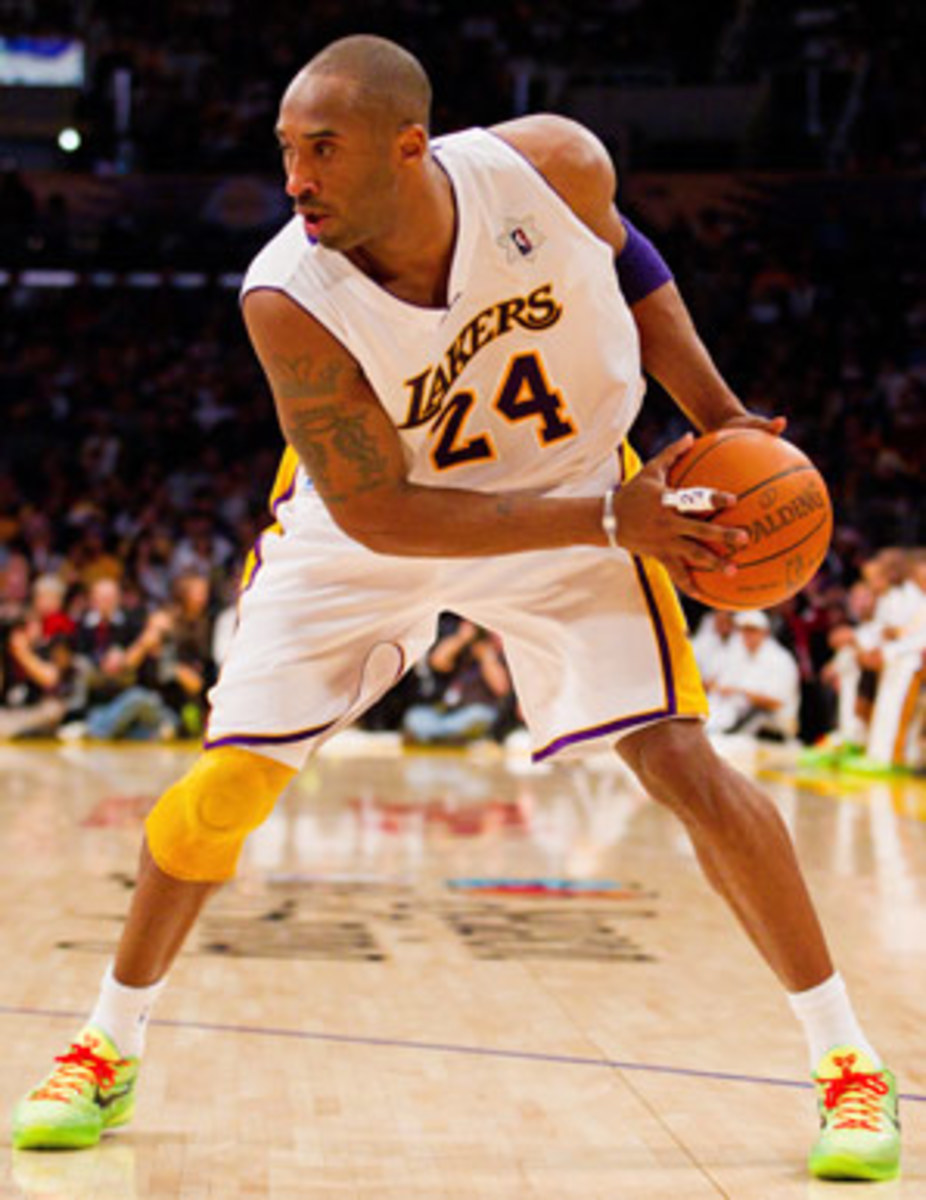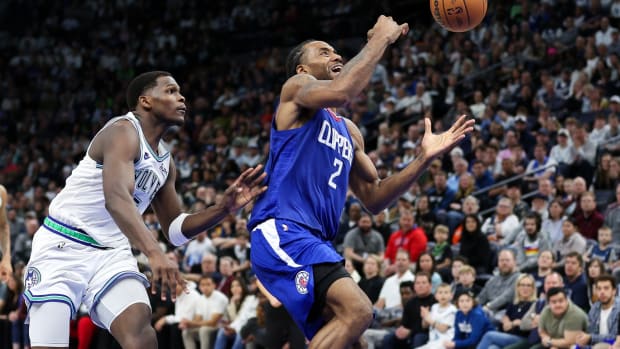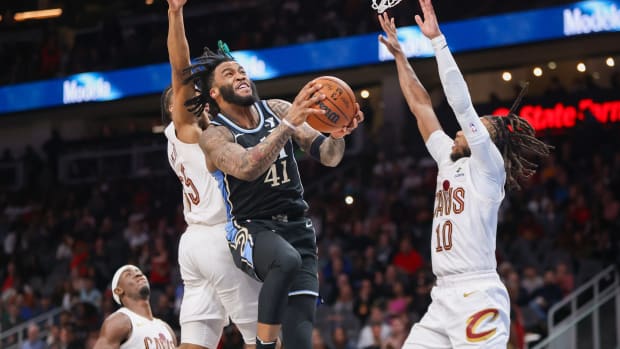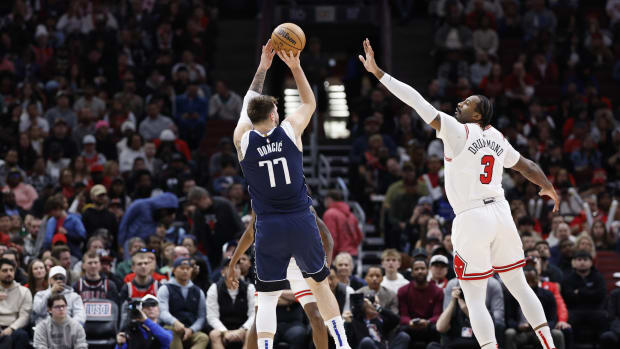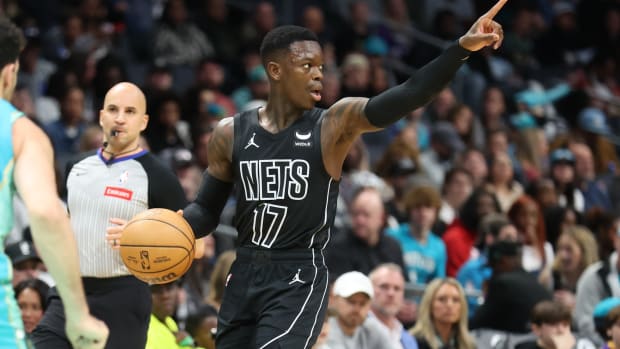Over the years, the NBA has become a staple on Christmas Day
What has five heads, wears short pants and is a danger to your family? If you answered AC/DC, you would have been right, in 1980. But in 2011, the correct answer appears to be the NBA's Christmas Day quintuple-header, five games from noon through midnight that few parents will relish playing in or coaching in or broadcasting.
Last year, Magic coach Stan Van Gundy memorably said: "I think the NBA is so important to Christmas that we really need to increase from five games to 10, and we need to start them at midnight on Christmas Eve and play them all through the day so there's not a minute of Christmas Day when there's not an NBA game on TV. Because it's great. The NBA is Christmas ... It's what it's all about."
And while Van Gundy was being sarcastic, the NBA really is all about Christmas, and has been from the very start. In the league's second season, when it was known as the BAA, it staged a triple-header on Christmas Day of 1947. A year later, Christmas Day brought a quadruple-header. The season after that, the newly expanded 17-team NBA bypassed the quintuple-header entirely in favor of a sextuple-header.
That was Christmas Day 1949, which makes Christmas Day 2011 appear -- as Van Gundy suggested -- a spectacle of relative moderation.
That six-pack of Christmas games in 1949 was not for the sake of TV. There were 1.3 million sets in the U.S. that year, versus 85 million radios, so the Christmas games did not bring greater exposure to a captive audience. Rather, playing games on Christmas was simply what top-level basketball players did, and had always done. Before the Knicks more or less took over Madison Square Garden on every Christmas Day, top college teams played at the Garden on Christmas. Before that, the best players in the world played in drafty armories on Christmas.
"The greatest collection of basketball talent ever assembled under one roof will be seen in action this afternoon at Foot Guard Hall when the All-Collegians clash with the strong All-Hartford quintet, giving the fans a Christmas day attraction of the first magnitude," announced the Hartford Courant in its Christmas Day edition of 1922. (Yes: 1922.)
In 1924, the Montreal Canadiens hosted the Boston Bruins on Christmas Day, and the NHL would continue to play on Christmas for the next 47 years. This isn't to say that the athletes have always -- or ever -- enjoyed doing so. Jim Loscutoff joined the Celtics from the University of Oregon in 1955. A decade later, in his final NBA season, he told an interviewer: "How can you explain to a child that Christmas comes on December 21 or December 27 at your house but on December 25 at everyone else's? During my nine years in the NBA, I've been home on Christmas Day just twice."
To assuage players, coaches and broadcasters, the NBA settled on an expedient solution: It expanded to Phoenix -- average December high temperature: 66 degrees -- and for a long time made the Suns play at home on every Christmas, beginning in the franchise's first season. Dick Van Arsdale played for the Suns from the very beginning, in 1968, and never once got Christmas off until he retired in 1977.
By then, the NBA had Christmas Day to itself. The NHL played its last Christmas games on December 25, 1971: A sextuple-header that saw 12 of the league's 14 teams begrudgingly in action. The day the NHL played its last Christmas games, the NFL played its first Christmas games, playoff contests that didn't go down well at all. As the Vikings hosted the Cowboys on CBS, a fan in Minnesota set fire to his tickets. Governor Wendell Anderson sent a telegram of complaint to NFL commissioner Pete Rozelle, who said of the holiday scheduling: "We couldn't avoid it."
But of course the league could avoid it, and would, in part because of what happened that Christmas evening four decades ago. Over many protests, the Chiefs hosted the Dolphins on NBC in an insanely compelling game, won by Miami in two overtimes, despite 350 all-purpose yards from Kansas City's Ed Podolak. When the game finally finished, after 82 minutes and 40 seconds of play, it was -- and remains to this day -- the longest contest in NFL history.
Which was a problem. Forget that the Knicks hosted the Warriors and the Suns hosted the Sonics that day. Never mind that the NHL had held an exhaustive sextuple-header. No, football fans alone -- even those who never changed channels -- had been, by Christmas night of 1971, adhered to their couches for eight consecutive hours. It was a fact that even the NFL found not entirely salubrious.
And so the league didn't play on Christmas for the next 18 years, abandoning the holiday to basketball, though the NFL has long since gotten over that self-restraint. This Christmas, for the third year in a row, the NFL will televise a Christmas game -- the Bears vs. Packers, at 8:20 ET on NBC, opposite the NBA game on ABC, in which the Thunder host the Magic and their ecstatic coach, Stan Van Gundy.
If you prefer a traditional Christmas evening, the kind your parents or grandparents used to have, then turn your TV, during Christmas dinner, to the NFL Network. It will be airing an anniversary special -- The Longest Game Ever about that Christmas evening 40 years ago, in a simpler time that never existed.






























